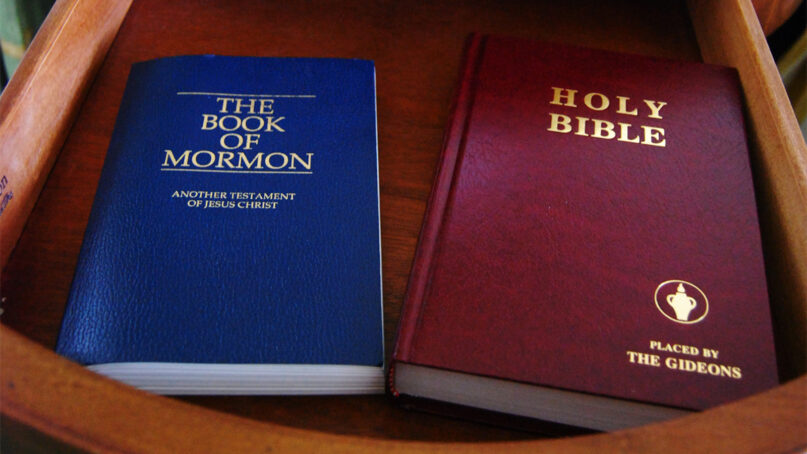(RNS) — Last week, you may have heard, the Bible was removed from all elementary and middle school libraries in Davis County, Utah, after an unidentified person lodged a complaint that the book violates the state’s new “sensitive materials” law, which prohibits instructional material that is “pornographic or indecent.”
To be sure, as I pointed out in an earlier column, there’s no shortage of sexually explicit material in the Bible. But the review committee charged with adjudicating such complaints for Davis County decided that the Bible does not violate the new law.
Presumably that’s because, as defined in state law, material is pornographic only if “[t]aken as a whole it does not have serious literary, artistic, political or scientific value.” The unidentified complainant notwithstanding, it’s pretty hard to claim that the material in question lacks some such value.
But the review committee did find the Bible in violation of the county’s own requirement that any “vulgarity or violence” in library material be age appropriate. From Cain’s murder of Abel and the extermination of the Amalekites to the crucifixion of Jesus and the bloody battle of Armageddon, the violence in the Hebrew Bible and the New Testament evidently outweighed their “serious literary, artistic, political, or scientific value for minors.”
Until they reach 10th grade, that is. High school libraries can keep their copies on the shelves.
But if the Bible is not age appropriate for elementary and middle schoolers in Davis County, what about the Book of Mormon, holy writ for the more than three-quarters of the population who belong to The Church of Jesus Christ of Latter-day Saints? That thought occurred to The Salt Lake Tribune’s longtime religion reporter, Peggy Fletcher Stack, who noted a number of passages that could fall afoul of Utah’s strictures, such as the rape and murder of prisoners of war in Moroni 9.
Of course, review committees in Utah (and wherever else material is being removed from school libraries) could deal with problematic passages by replacing existing books with bowdlerized versions — so called since the English physician Thomas Bowdler published an edition of Shakespeare’s plays in 1807, intended for women and children and therefore stripped of their sexual references. As it happens, he was following in the footsteps of his mother, who had published an expurgated version of the Hebrew Bible’s Song of Songs three decades earlier.
In America, there’s the example of the learned and pious lexicographer Noah Webster, who in 1833 published a revised edition of the King James Version. Webster largely confined himself to making grammatical corrections and bringing the language up to date, not that he wasn’t concerned about the references to sexual and other bodily functions.
As he wrote in the Introduction under the heading “Euphemisms”:
In no respect does the present version of the scriptures require amendments, more than in the use of many words and phrases which cannot now be uttered, especially in promiscuous company, without violence to decency. In early stages of society, when men are savage or half civilized, such terms are not offensive: but in the present state of refinement, the utterance of many words and passages of our version is not to be endured; and it is well known that some parents do not permit their children to read the scriptures, without prescribing to them the chapters. To retain such offensive language, in the popular version, is, in my view, injudicious, if not unjustifiable; for it gives occasion to unbelievers and to persons of levity, to cast contempt upon the sacred oracles, or call in question their inspiration; and this weapon is used with no inconsiderable effect.
Further, many words and phrases are so offensive, especially to females, as to create a reluctance in young persons to attend Bible classes and schools, in which they are required to read passages which cannot be repeated without a blush; and containing words which, on other occasions, a child could not utter without rebuke. The effect is, to divert the mind from the matter to the language of the scriptures, and thus, in a degree, frustrate the purpose of giving instruction.
Purity of mind is a christian virtue that ought to be carefully cherished; and purity of language is one of the guards which protect this virtue.
Webster did deal with some of the language he considered offensive, for example by substituting “made fruitful” for “opened the womb,” “lewd woman” for “whore,” and “males” for “him that pisseth against the wall.” But in the end the work of euphemization proved too much for him.
“It was my wish to make some further alterations in this particular; but difficulties occurred which I could not well remove,” he wrote, and concluded by citing 33 unaltered chapters and verses followed by “Etc.”
Review committees, take note.






